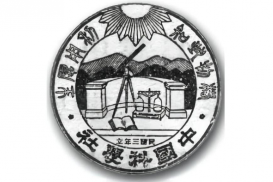This project of global knowledge production critically delves into the Chinese and Indian intellectuals’ assimilation to modern Western-dominated science during the early twentieth century, which became entangled with the complexities of colonialism and the nationalistic quest for scientific modernity.
Our primary objective is to delineate the different trajectories of knowledge absorption and assimilation, considering how Western scientific knowledge intersected with pre-existing local knowledge systems in China and India. By investigating motivations, resistances, and adaptations in cross-cultural exchanges, we seek to determine whether the development of scientific knowledge in China and India was fundamentally shaped by colonial influences or if it laid the foundation for an independent development of science.
This exploration of Chinese and Indian experiences in the early twentieth century in the context of global knowledge production aims to unravel the intricate dynamics between Western science, local knowledge, and colonial influences. By delving into motivations, choices, and consequences of knowledge assimilation, in light of the contemporary context, our research explores the following aspects:
Initiation of Scientific Assimilation: We delve into the start of deliberate engagement with Western dominated science by Chinese and Indian intellectuals. While India embarked on this path in the late eighteenth century, China's active pursuits of western scientific knowledge did not systematically start until the Sino-Japanese War of 1898. We scrutinize the divergent responses to the Western-dominated knowledge system of science, thereby identifying the catalysts for these dissimilar approaches. Despite these disparities, we find commonalities in the assimilation of science in both countries, such as Ishwar Chandra Vidyasagar and Zhang Zhidong's determination to retain their cultural essence while embracing Western knowledge of science for the sake of utility.
Translation of Scientific Terminologies: The translation of scientific texts and terminologies becomes a lens through which we examine knowledge transmission. We investigate efforts like Vidyasagar’s Bengali language textbooks,the Tongwenguan school’s systematic translation of western knowledge of science in Late Qing’s Self Strengthening Movement, and the China Foundation's sponsorship of Chinese translations of scientific textbooks in the Republican period. We explore linguistic contexts that made the large-scale dissemination of Western scientific knowledge possible in later stages of development in China and India.
Pure vs. Applied Sciences: Delving into the scientific development agendas of the time, we compare the pursuit of pure (basic) and applied sciences in China and India. While British influence advocated for applied sciences in India, local scientists harbored different aspirations and pursued advanced research in pure sciences. Similarly, in China, despite the American call for developing applied sciences, Chinese scientists navigated resources of all sorts to prioritize the research of pure sciences.
Physics as a Case Study of Local Knowledge Production: Focusing on the development of physics, we draw parallels between prominent physicists in China and India. This case study serves as a microcosm of the broader scientific landscape and allows us to analyze not only the individuals but also the overall progress of the field during the period. Physics stands out amongst many other scientific disciplines such as chemistry, mathematics, etc. where Indian and Chinese scientists pioneered in making world-class research findings.
Transplantations and Resistance against Western Knowledge of Science: Our investigation extends to areas where Western scientific knowledge encountered resistance or coexisted with pre-existing practices. We examine how domains like language, philosophy, and herbal medicine persisted despite the influx of scientific ideas. The discussion delves into instances like Rabindranath Tagore's global impact after WWI and the enduring reliance on traditional herbal medicine practices in the wake of contemporary global medical challenges after COVID-19.

Indian Institute of Science (since 1909)

